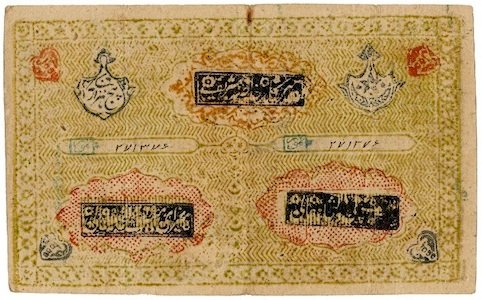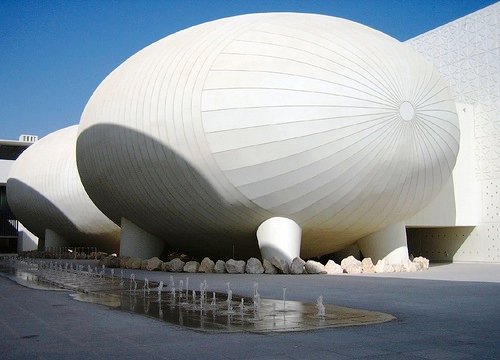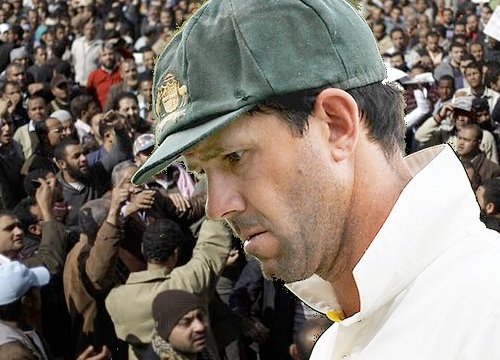The Sands of Oxus is my book from Tajikistan for the Read The World challenge. Which is a bit of a cheat, in fact. Aini’s Tajikistan credentials would seem to be impeccable: according to Wikipedia, he is ‘regarded as Tajikistan’s national poet’. He wrote the first Tajik novels and a Tajik dictionary. He was a member of the Central Executive Committee of the Tajik SSR, the president of the Writer’s Union of Tajikistan, and the president of the Tajikistan Academy of Sciences. However, rather annoyingly for my purposes, he didn’t actually live there. He was born, and spent his whole life, in what is now Uzbekistan. He was ethnically Tajik, but not geographically.

This seems rather typical of Central Asia; my book from Uzbekistan, The Railway, was written by someone who was actually born in Kyrgyzstan. The Day Lasts More than a Hundred Years is my book from Kyrgyzstan, but it’s set in Kazakhstan. I guess it’s partially because the Silk Road historically created a mixed, mobile population; and more recently because it was all part of the Soviet Union, and people moved from one SSR to another for all kinds of reasons, sometimes by choice and sometimes under duress.
If I come across a book which is a more perfect fit for Tajikistan, I might read that as well, I suppose. But The Sands of Oxus will do for now. It is the first volume of Aini’s autobiography; it covers his childhood in rural Uzbekistan — in what was then (1878-90) the Emirate of Bukhara. The book ends with him leaving to study at a madrasa at the age of twelve.
It’s a straightforward chronological autobiography told, at least in this translation, in fairly plain prose, but I found it very interesting; mainly for what you might call historical/ethnological reasons. It’s a vivid portrayal of life in a small village in Central Asia in the 1880s; the farming, the food, the customs. It’s occasionally a bit didactic — there are a few incidents which carry a suspiciously neat message — but not annoyingly so. The broadly political stuff, about venal magistrates, ignorant village mullahs, ruthless tax collectors and the arrogant aristocracy, might I suppose be influenced by his revolutionary politics as an adult and indeed the fact he was writing in Stalin’s USSR. Not that any of it is inherently implausible.

Reading it, it seems like an incredibly timeless world: the cycle of planting and harvest, Ramadan, a summer festival, circumcisions, marriages, funerals. There is no mention of any modern technology at all, not even the telegraph or the steam engine. It must have already seemed ancient by the time this book was written in 1949.
Here’s a fairly random sample:
Each year when the mulberries began to ripen, my father used to move us from Mahallayi Bolo to Soktaré. The year that the Shofirkom canal was choked with sand and Mahallayi Bolo was left without water, we moved to Soktaré early, even before the mulberries began to fruit.
In Soktaré my brother and Sayid-Akbar Khoka began to study with the village khatib, and I played in the many streams and canals with other boys my age. My father decided not to move back to Mahallayi Bolo that winter, since drinking water was scarce there and had to be drawn from a village well and carried to the house. Accordingly, he demolished our tumbledown living quarters and built a new house of mud brick, with a storeroom, a kitchen porch, a cattle stall and a barn for hay. Usto Khoja assisted him with the construction, and Ikrom Khoja and Muhyiddin helped as far as they could in mixing the mud; but despite his father’s pestering, Sayid-Akbar refused to help, claiming that he wanted to be a calligrapher and if he soiled his hands with mud and bricks they would be spoiled for the pen.
That year I and my playmates Haid Khoja, the nephew of Ibrohim Khoja, and the daughters of Usto Khoja, spent most of our spare time with Tūto-posho, who would tell us strange and wonderful tales. She knew by heart the stories of Rustam, Isfandiyar, Siyavush, and Abu Muslim, and would repeat them for us endlessly. We would each bring her bread, mulberry raisins, or some other delicacy to entice her to talk. She would lie back with pillows under her head and legs, and tell us stories.
Certainly worth a read.
» The images are two sides of a 5000 tenga note from Bukhara in 1920. So the period isn’t quite right, but I like the pictures, so why not. From the British Museum.


